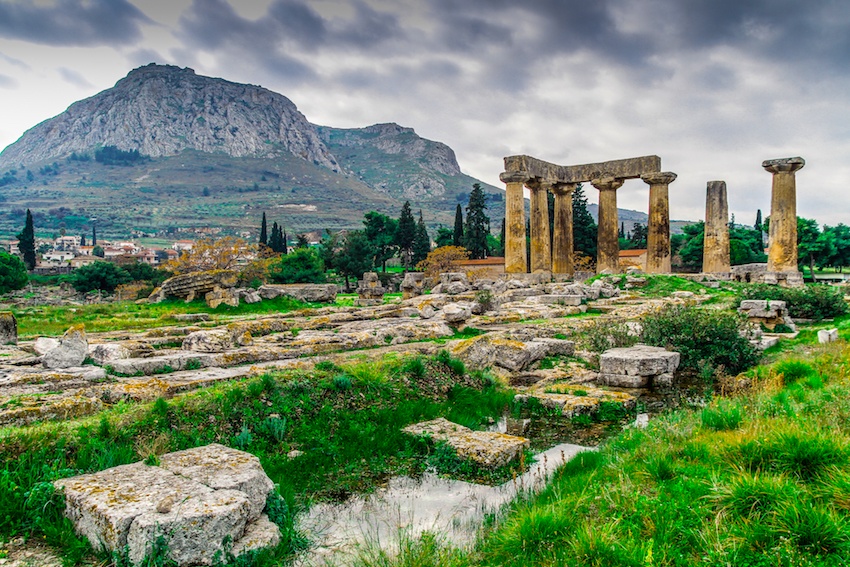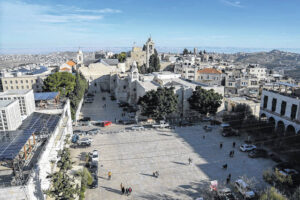
Corinth: Paul wrote two epistles to the church
Corinth is a significant ancient city located in southern Greece, particularly known for its influence in early Christian history due to the Apostle Paul’s connection with the city’s Christian community. Here are some quick facts about Corinth in the context of Paul’s epistles:
- Location: Corinth was a major city in ancient Greece, located on the Isthmus of Corinth, linking the Peloponnese with mainland Greece.
- Significance: It was a key commercial hub, known for its wealth from trade.
- Cultural Diversity: The city was noted for its diverse population, with a mix of Greeks, Romans, and Jews, among others.
- Paul’s Engagement: Paul visited Corinth around 50-52 AD during his second missionary journey and stayed for about 18 months.
- The Epistles: Paul wrote two letters to the Christian community in Corinth, addressing issues related to community divisions, morality, and spiritual gifts.
- Religious Context: Corinth’s religious landscape was varied, with numerous pagan temples, which influenced the social and religious challenges faced by the early Christians there.
Historical and Cultural Context
Corinth was one of the leading cities of ancient Greece, enjoying a strategic position that facilitated its emergence as a major commercial center. The city’s prosperity was evident in its architecture, public spaces, and the wealth of its citizens. This economic prosperity, however, also brought about social disparities and moral challenges, reflected in the issues addressed by Paul in his letters.
Social and Moral Climate
The social fabric of Corinth was complex, characterized by a blend of Roman, Greek, and Eastern cultures. The city was known for its cosmopolitan populace and liberal attitudes, particularly towards sexuality, which was influenced in part by religious practices associated with the Temple of Aphrodite. Slavery was common, and social status played a significant role in determining one’s place in the societal hierarchy. The early Christian community in Corinth was not immune to these societal norms, which led to divisions and moral dilemmas among its members.
Religious Environment
Corinth was a melting pot of religions, housing temples dedicated to various gods and goddesses from the Greek pantheon, as well as cults worshipping Egyptian and Roman deities. The religious plurality posed a significant challenge to the nascent Christian community, struggling to maintain its distinct identity and resist the syncretistic pressures of its environment.
Paul’s Engagement with Corinth
Paul’s interaction with Corinth was marked by his efforts to guide and consolidate the Christian community there. His letters address a range of issues, from internal divisions and lawsuits among believers to questions about marriage, food offered to idols, and the use of spiritual gifts. These issues reflect the broader challenges of living a Christian life in a cosmopolitan and morally relaxed city.
- Community Divisions: Paul addressed the factions within the church, criticizing the followers for dividing themselves based on allegiance to different Christian leaders.
- Moral and Ethical Instructions: The letters offer guidance on various ethical dilemmas, including lawsuits among believers, sexual immorality, and the question of eating food sacrificed to idols, emphasizing a life led by the Spirit and not by the flesh.
- Spiritual Gifts and Worship: Paul devoted significant portions of his letters to the proper use of spiritual gifts and the conduct of orderly worship, highlighting the importance of love as the greatest virtue.
- Resurrection: The doctrine of resurrection and its implications for Christian life and hope is a central theme in 1 Corinthians 15, reflecting Paul’s theological priorities.
Paul’s epistles to the Corinthians provide a vivid snapshot of early Christian life amidst the challenges of a diverse and complex urban setting. His letters not only address specific issues of the Corinthian church but also offer timeless guidance on Christian living, community, and morality. The Corinthian correspondence showcases Paul’s pastoral care and theological depth, emphasizing the transformational power of the gospel in varied and challenging cultural contexts.



